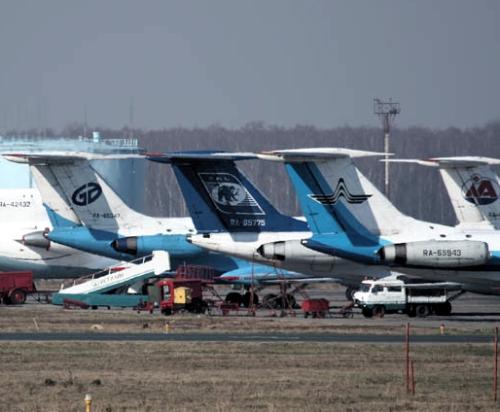We travelled a route, each knowledgable foreigner tries to avoid: the one via Moscow Domodedovo Airport. An old, shabby and dreadfully smelling Tupolev air plane, its equipment and security violating the IATA regulations to the extreme. Broken seat belts, seats which cannot be put to an upright position, overhead compartments, which regularely open, when the air plane is landing.

Free seating: the fight for the seats starts already at the custom control, continues while we are boarding the bus and ends while entering the air plane at the gangway. While the atmosphere is brutal and very tense, the crowd softens quickly, when women with children wish to enter. They are definitely first. Finally we made it into the plane, squeezed tightly between young, mostly male Tajiks, leaving for work in Moscow. They do so with no proper working contract and insurance, but are happy to escape poverty and unemployment in Tajikistan.
Its definitely a men´s world we are in. I have the certain feeling that this is a transport of young soldiers heading for the fight. Tiredness, excitement, curiosity. Ready to fight it, still. Though, its another kind of war: the one on work and regular income in a world of unbalanced globalisation.
No visa needed to enter Russia. Nevertheless it takes a long, long time until these men can pass the Russian customs control. Most of them are almost illiterate (and not talking proper Russian) and they need any help the can find to fill in the registration forms. In the transit area a elderly lady in uniform bosses them around, with a sharp and violent voice.
The authors of a recent OECD study on migration in Europe (Gaining from Migration. Towards a new mobility system. OECD, 2007) recommend governments not to talk about immigration systems anymore. They should be conceptualised as an emerging system of international labour mobility (p. 12). And it states, that the relative importance of European immigration from Ukraine, China, the Russian Federation and countries in Latin America (p.27) is increasing.
Looking at these young and desperate work soldiers I hesitate to accept the euphemism of the wording labour mobility, especially if it comes to low-skilled workers. I wish the authors would have travelled with us: on this trip from Dushanbe to Moscow. And experienced for only four hours flight what it can mean to be part of this kind of mobility.
[more on migration in cis]


